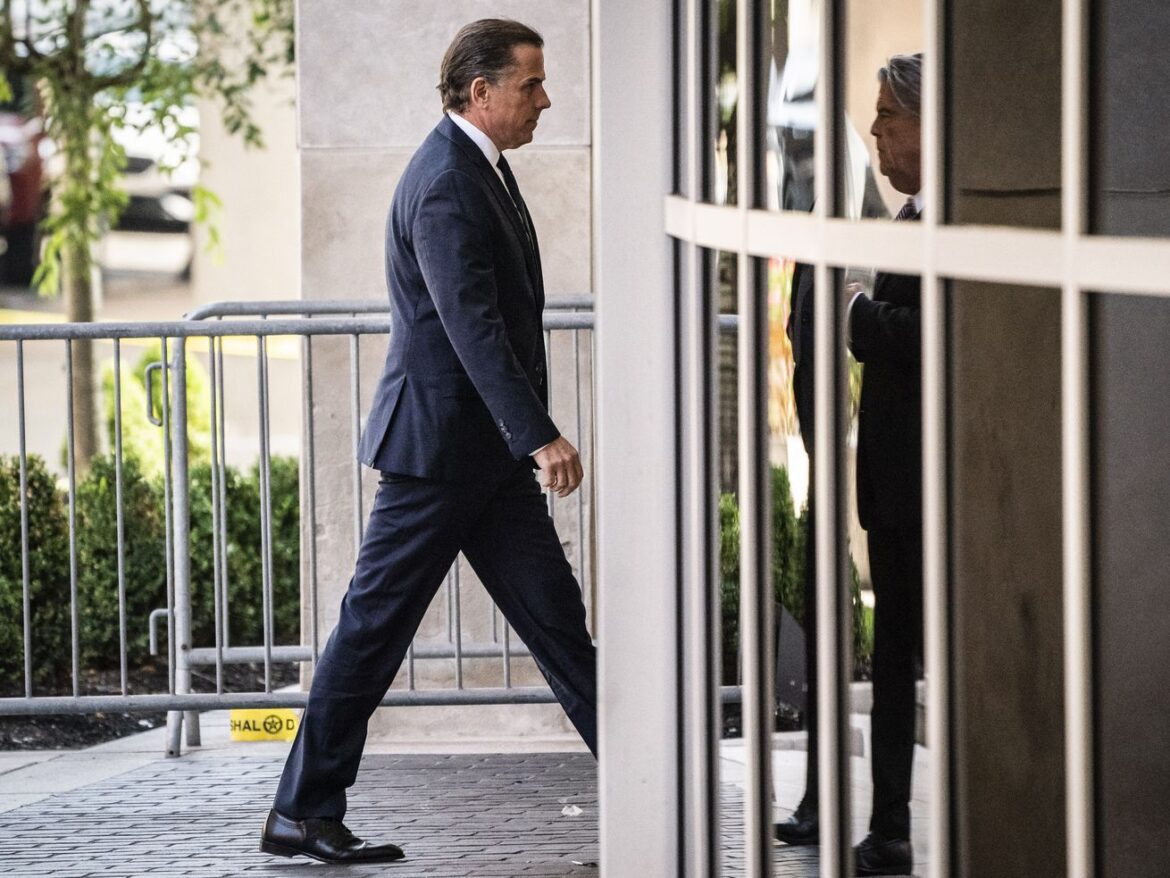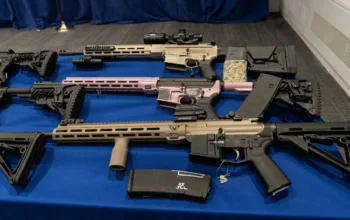Prosecutors are moving aggressively because the plea deal fell apart. But why did it fall apart?
For more than four years, prosecutors have been digging into Hunter Biden’s tax and business affairs — including millions of dollars he made from a Ukrainian gas company and a Chinese energy company. And congressional Republicans have been hoping to connect Hunter’s money to corrupt conduct from Joe Biden, though they haven’t succeeded in proving any such thing yet.
The new indictment against Hunter Biden unsealed Thursday doesn’t have anything to do with all that — it’s about a gun Hunter bought in 2018.
The indictment is brief because the underlying situation is quite simple. When Hunter bought the gun, he filled out a form saying he was not a drug user, when in fact he had a serious addiction at that time. Prosecutors assert that this violated three different laws — two false statements laws, and one law banning firearm possession by a drug user.
But the legal and political saga surrounding the indictment is much more complicated. Initially, prosecutors weren’t going to charge Hunter in the gun case at all. They did so only after the lead prosecutor, David Weiss, shifted to a more aggressive posture after a plea deal he’d struck with Hunter’s team fell apart. The question is why, exactly, that plea deal fell apart.
The Hunter Biden investigation has had about as messy a year as could be imagined. In May, two IRS officials involved in the probe went to Congress as whistleblowers to argue that Weiss’s team wasn’t being aggressive enough. In July, Weiss’s team presented their plea deal with Hunter before a judge — who refused to accept it, telling both sides to clarify some of its provisions after a dramatic public hearing.
Then, in August, talks between Weiss’s team and Hunter’s attorneys to finalize that deal collapsed. Hunter’s team has claimed that Weiss tried to belatedly change the deal’s terms on them — offering Hunter much more limited immunity from prosecution — after criticism from Republicans that he wasn’t being tough enough on the president’s son.
Whatever the reason for Weiss’s shift, there’s likely more to come from him. Last month, Weiss, who is the US Attorney for Delaware, requested that Attorney General Merrick Garland grant him special counsel status as well, and Garland agreed. Weiss has suggested in court filings that he intends to charge Hunter with tax crimes as well.
This isn’t really about a gun crime
In the mid-2010s, Hunter was drinking heavily, then progressed to a very serious crack cocaine addiction, particularly after his older brother Beau died of brain cancer. Hunter had a messy divorce from his wife, who would later accuse him in a court filing of “spending extravagantly” on “drugs, alcohol, prostitutes, strip clubs, and gifts for women with whom he has sexual relations.” He began dating Beau’s widow Hallie, in what proved to be a tumultuous and ultimately short-lived relationship. His darkest period stretched from about spring 2018 to spring 2019, a period in which, by his own telling, he was almost constantly on drugs.
On October 12, 2018, Hunter bought a gun in Wilmington, Delaware. As part of the purchase, he filled out a form stating he was not a user of illegal drugs. The gun became an issue when Hallie learned of it, became concerned he might harm himself, and threw it in an outdoor trash can, where it was discovered and reported to police. Texts he sent at the time made clear he was not particularly stable at the time, but no one was hurt.
This was never the centerpiece of any investigation into Hunter. But it was a seemingly clear case of an open-and-shut crime — he said on the form he wasn’t a drug user, but he was. Many long probes into purported corruption end this way, with a false statement on a federal form — with something clear and written down, rather than something murky and hard to establish. Still, prosecutors have discretion about whether they think such a case would be worth charging. But the gun charge always remained in the mix throughout the lengthy investigation, as some leverage prosecutors had on Hunter.
Yet when the two sides struck their plea deal this June, prosecutors weren’t technically going to charge the gun issue at all. Instead, they crafted a “pretrial diversion agreement” in which Hunter could avoid the court system if he agreed to abide by certain conditions (such as remaining sober). These agreements are frequently used for nonviolent offenses stemming from addiction.
But now that prosecutors have had a falling out with Hunter’s team, they’re saying this isn’t just one crime — it’s three. Hunter has been indicted on three counts:
- Making a false statement in the purchase of a firearm.
- Making a false statement related to information required to be kept by a Federal Firearms Licensed Dealer.
- Possession of a firearm by a person who is an unlawful user of or addicted to a controlled substance.
The decision to charge here is not because this gun incident suddenly became more serious. It’s because prosecutors have now decided to go after Hunter more aggressively, after the political pressure and the plea deal’s collapse.
There’s nothing unusual about prosecutors charging more crimes after a plea deal falls apart. The mystery here remains why, exactly, the plea deal fell apart. If the main reason is simply that, due to political pressure from Republicans and embarrassment over the IRS officials’ claims, Weiss’s team got cold feet on a deal they’d agreed to — that wouldn’t make them look so great.
If the main reason is instead that, due to confusion or incompetence on his team, he belatedly concluded the initial deal with Hunter had been far too generous — well, that wouldn’t make him look so great either.



